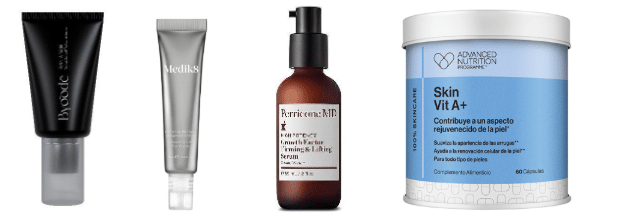An innovative study conducted by the University of Michigan has revealed the potential of retinoids in treating skin aging, particularly in skin significantly damaged by age. This research involved 36 individuals over the age of 80, who were applied a lotion with 0.4% retinol on one half of their body, while a cream without this active ingredient was applied to the other half. The findings, published in the journal JAMA Dermatology, indicate that after just four weeks, the skin treated with retinol showed a remarkable decrease in fine wrinkles, as well as improvements in thickness and firmness.
Mireia Fernández, dermocosmetic director at Perricone MD, highlighted the rigor of the study, pointing out that its design clearly demonstrates what retinol can achieve, even under challenging conditions such as aging skin. The research confirmed that using retinol three times a week increased the production of type I procollagen and glycosaminoglycans, essential elements for skin hydration and structure.
Raquel González, cosmetologist and founder of Byoode, emphasized that these results confirm the impact of retinol not only on the skin’s surface but also in its deeper layers, thus improving the dermal matrix. This effect becomes visible starting from the fourth week of treatment, which could encourage those considering starting a retinol regimen.
Although the study focused on the body, the findings may also be extrapolated to the face, where exposure to various external factors accentuates signs of aging. Fernández explained that retinol acts as a “cellular trainer,” renewing the dermis from within and promoting collagen production.
It is important to note that the effects of retinol are temporary, as the benefits begin to fade once its use is interrupted, highlighting the need to establish a consistent skincare routine. Estefanía Nieto, dermocosmetic director at Medik8, warned about the importance of integrating retinol long-term to maintain its results.
Additionally, it has been noted that vitamin A and other retinoids may offer benefits when taken orally as well. Marta Agustí, nutritional director at Advanced Nutrition Programme, commented that the synergy between internal and topical use of vitamin A could maximize skin quality.
Products designed to combat skin aging are becoming increasingly effective and less irritating, demonstrating that research and innovation in dermocosmetics continue to pave the way for more effective and personalized care.
Referrer: MiMub in Spanish











